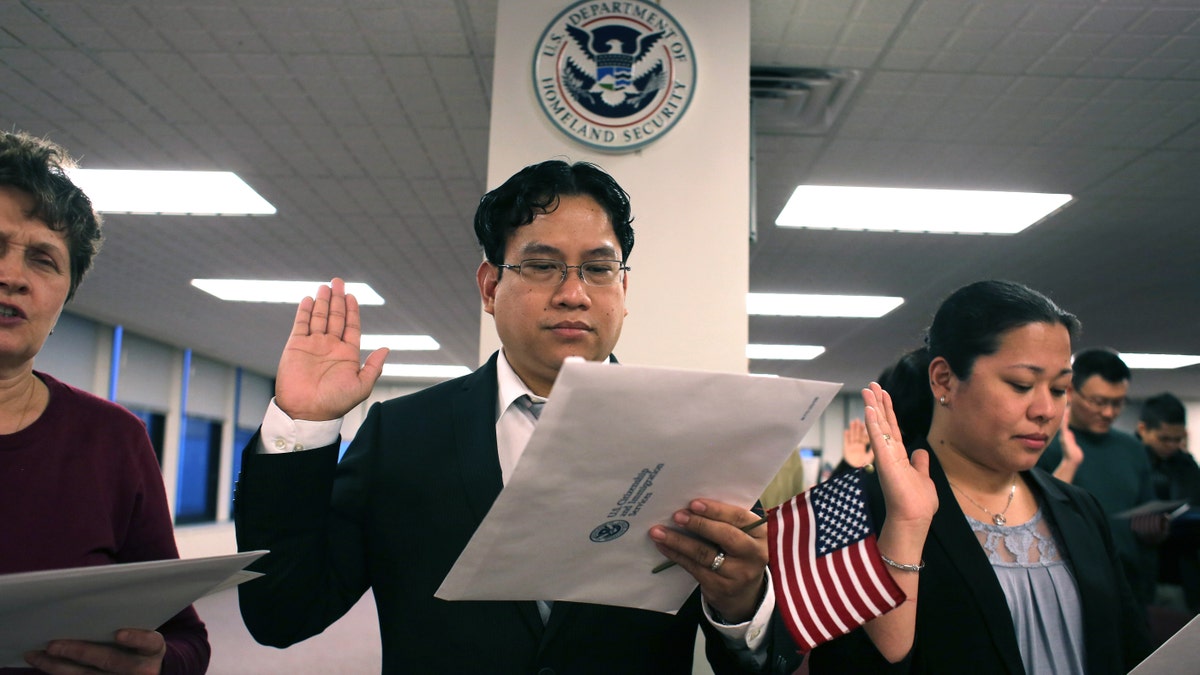
NEWARK, NJ - JANUARY 28: Immigrants take the oath of allegiance to the United States during a ceremony at the district office of U.S. Citizenship and Immigration Services (USCIS) on January 28, 2013 in Newark, New Jersey. Some 38,000 immigrants became U.S. citizens at the Newark office alone in 2012. (Photo by John Moore/Getty Images) (2013 Getty Images)
There are approximately 11 million undocumented immigrants in the United States. If enacted, a massive legalization program would mean that those 11 million people would eventually become U.S. citizens, right?
Not necessarily.
A new report by the Pew Hispanic Center, a nonprofit research think tank in Washington, D.C., concluded that, taking history into account, even under a new amnesty program, millions of immigrants would likely come out of the shadows and take the chance to get a “green card,” or legal permanent residency.
But millions of others would not become U.S. citizens, according to the report. Right now, with no legalization program in place, barely one-third of Mexican nationals — by far the largest immigrant group in the country — who currently have green cards and could become U.S. citizens actually do so.
Further proof that many don’t take advantage of the possibility is found in a Department of Homeland of Security study in 2010, which revealed that just 40 percent of 2.7 million immigrants who benefited from the 1985 amnesty had become U.S. citizens by 2009.
Thus a new amnesty program being debated in Washington would create a huge new crop of legal residents but not U.S. citizens.
“The Center’s analysis of current naturalization rates among Mexican legal immigrants suggests that creating a pathway to citizenship for immigrants in the country illegally does not mean all would pursue that option,” according to the Pew report.
Instead, the report noted, many would think a green card would suffice in order to live and work legally without tapping into other potential rights — such as obtaining federal jobs and voting in presidential elections — afforded to U.S. citizens.
But it’s not because they wouldn’t want to become citizens. A Pew survey of Hispanic immigrants revealed that 93 percent who can but have not become citizens — dubbed “naturalization” — actually want to take that step.
Not being confident enough with their English skills and the high cost of the naturalization process — nearly $700 — were oft-cited as the main obstacles, the Pew report said.
